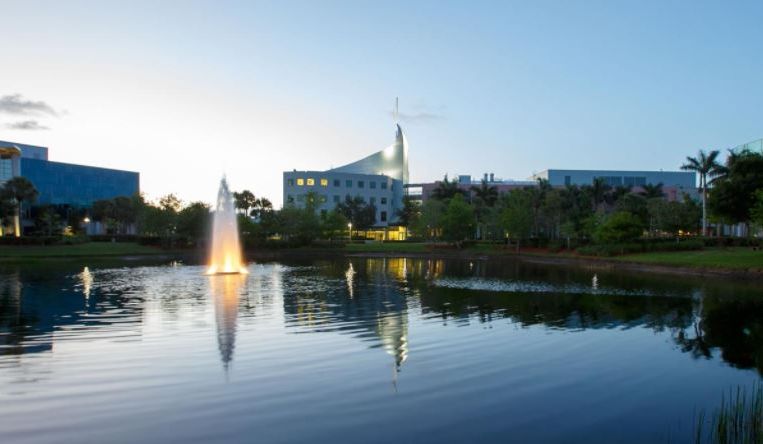University of Florida to Become Parent of Scripps Florida Biotech Labs
By Jeff Ostrowski July 22, 2021 4:29 pm
reprints
The University of Florida (UF) is in talks to take over the nonprofit Scripps Florida medical research operation in Jupiter. The merger would mark a new phase in Florida’s billion-dollar bet on biotech, one that former Gov. Jeb Bush kicked off when he wooed Scripps to the state.
UF said Thursday that “discussions have proceeded swiftly” with Scripps, part of the San Diego-based organization that expanded to Florida in 2003.
The marriage would combine the state’s largest recipient of National Institutes of Health grants with the fourth-largest recipient. UF has brought in $143 million in NIH grants in the fiscal year that began Oct. 1, 2020, compared to Scripps Florida’s $33 million.
"We have built an outstanding research institute in Scripps Florida with generous support from the state and from local communities and we believe it will have its biggest impact on Florida and greatest opportunity for further growth as part of UF, one of the country’s leading research and educational institutions,” Peter Schultz, president and chief executive of the Scripps Research Institute, said in a statement.
Scripps Florida operates from a 30-acre campus that’s adjacent to Florida Atlantic University’s Jupiter campus.
It’s the second time that Scripps has discussed a deal with a prominent university. In 2014, Scripps said it would address its budget squeeze by selling itself to the University of Southern California. That deal fell apart amid an outcry from scientists.
Scripps arrived in Florida with high hopes. Then-Gov.Bush promised to upgrade Florida’s notoriously low-wage economy by paying Scripps $310 million to open a Florida lab. Palm Beach County sweetened the pot with $269 million.
In all, Florida taxpayers spent more than $1 billion recruiting nonprofit labs to the state. Some, such as Scripps Florida and Max Planck Florida Institute for Neuroscience — also in Jupiter — are still going strong. Others, like the Vaccine & Gene Therapy Institute of Florida (VGTI Florida) in Port St. Lucie, failed.
At the time, Bush was a popular and powerful second-term governor, whose brother was in the White House. He envisioned a biotech bonanza: 50,000 jobs in 15 years from Scripps alone, along with demand for millions of square feet of biotech space in northern Palm Beach County, and a flood of donations from Palm Beach’s wealthy philanthropists. None of those promises came true.
"The dream of big biotech and pharma companies, like Merck and Pfizer, and high-paying jobs never materialized,” the Palm Beach Post reported in April.



